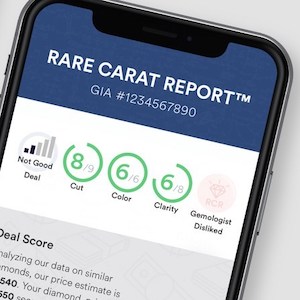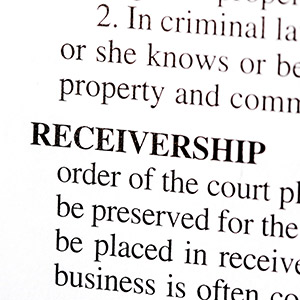
In recent months, Rare Carat, the site that originally billed itself as a “Kayak for diamonds,” which let consumers comparison-shop e-tail jewelers, changed its business model, and it’s now doing fulfillment for wholesalers that want to become consumer brands.
A page welcomes manufacturers, including those who have never sold direct to consumers before, to sell on the site.
After completing a screening process, its “design team will help you create a consumer brand to list under, to help you avoid conflict with your current sales channels,” the site said.
One seller, Astral Creations, was described as “a brand only found on Rare Carat—they are a wholesaler paired with a ring manufacturer. Rare Carat creates retail brands like Astral Creations to let wholesalers sell directly to you at lower prices. This is why you may notice little online presence, but extremely competitive prices.”
In the new model, “Rare Carat takes care of shipping, logistics, payment processing,” it said.
CEO Ajay Anand tells JCK via email that wholesalers have been listed on the site since October.
“We have not had any retailers on for months now,” he says, “though several former retailer partners are now listing as wholesalers.”
He adds that focusing on wholesalers, “remove[s] a layer of markup allowing consumers get better prices.
“Having oversight over the whole process is better for customer experience and ensures safety for buyers,” he adds. “It allows for consistency of policies and happier customers who have any issues resolved promptly, something that is trickier when working through different retailers.”
As a result, Rare Carat e-tail stores like With Clarity are no longer listed. (With Clarity, formerly called Four Mine, was purchased in February by Indian company Renaissance for $5 million.)
The original site made money by charging retailers advertising fees. The current model is “more of a true marketplace in terms of structure and monetization—like Etsy, Wayfair, or Airbnb,” Anand says.
He notes that most “retail marketplaces we study are moving away from the eBay-type model and toward managed marketplaces—handling fulfillment with the goal of a consistent and safe customer experience. Wayfair, RealReal, Fulfilled by Amazon, StockX, ThredUp are a few examples.”
He says Rare Carat differs from standard jewelry e-commerce sites like Blue Nile, which also handle fulfillment, by offering “value-added analysis to help shoppers make smart decisions as referenced: objective AI price scores, transparent diamond quality scores, and a team of over 30 GIA gemologists who provide noncommissioned advice.”
In December, the site applied for a service mark for the term, “America’s #1 ring marketplace.”
Top: The company’s Rare Carat Report (photo courtesy of Rare Carat)
Follow JCK on Instagram: @jckmagazineFollow JCK on Twitter: @jckmagazine
Follow JCK on Facebook: @jckmagazine





